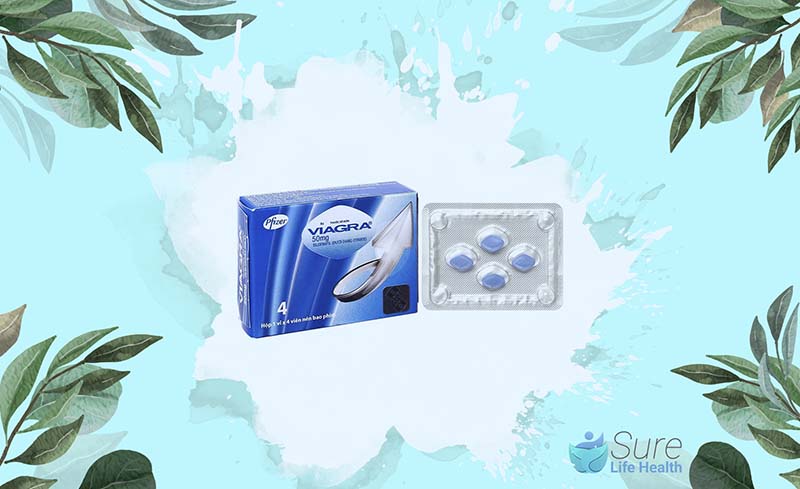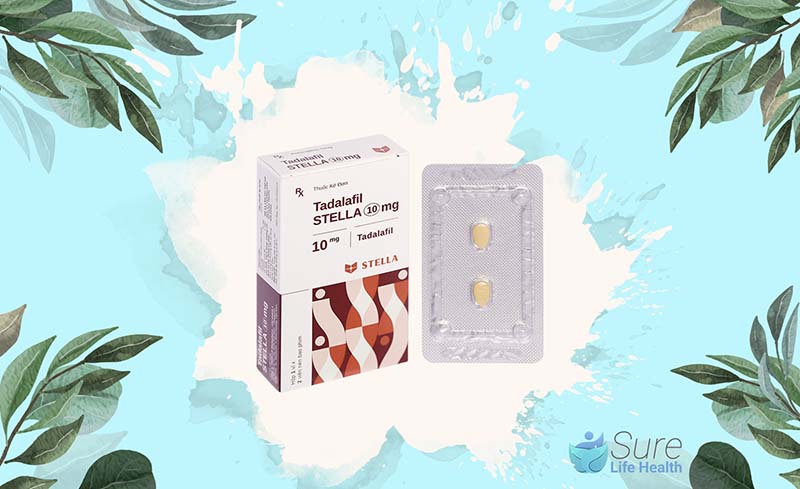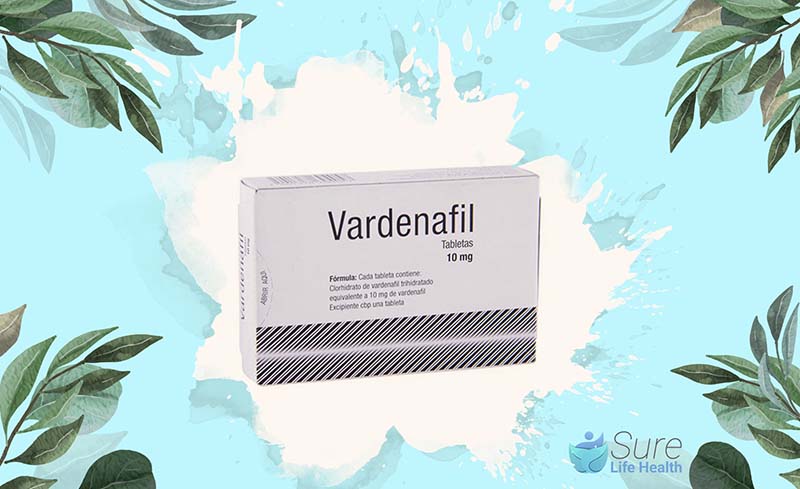Dealing with erectile dysfunction (ED) can be really tough, especially when the usual treatments don’t work. While scientific evidence does not support apple cider vinegar as a direct remedy for ED, it may contribute to certain underlying health conditions that can lead to ED.
People have been saying for a long time that apple cider vinegar can help with ED, even if it’s just based on their own experiences or old-time remedies.
For many individuals, apple cider vinegar does not induce adverse effects, rendering it a noteworthy option for those seeking to manage ED symptoms while concerned about the negative side effects associated with ED medications.
In this article, we will examine the existing research on apple cider vinegar for erectile dysfunction and evaluate its potential efficacy in addressing ED.
Note: Remember, even though natural ingredients like apple cider vinegar can be good for your health, they’re not a substitute for what the doctor orders. Also, doing things like staying active, eating right, and keeping stress in check can make any treatment for ED work better.
Does Apple Cider Vinegar Help with Erectile Dysfunction?
Currently, there is a lack of direct scientific evidence linking apple cider vinegar with improvements in erectile dysfunction (ED). Since ED can come from many different problems, it’s hard to say exactly if or how apple cider vinegar could be a solution.
These problems include things like heart disease, issues in a relationship, feeling stressed or down, using drugs or alcohol too much, smoking, injuries, diabetes, being overweight, and dealing with cancer or its treatments.
However, apple cider vinegar is associated with several health benefits, as evidenced by research conducted on humans and animals, including:
- Regulation of blood glucose levels
- Support in weight management efforts
- Potential in mitigating the risk of cardiovascular disease
Note: While apple cider vinegar shows promise for overall health, it’s not a guaranteed fix for ED, especially since ED can be caused by a wide range of issues. Improving lifestyle habits like eating healthier, exercising, and reducing stress might also help tackle the root causes of ED alongside considering natural remedies like apple cider vinegar.

How Does Apple Cider Vinegar Help Treat Erectile Dysfunction?
Apple cider vinegar might not directly fix erectile dysfunction (ED), but it can help in ways that indirectly improve ED by dealing with some of its causes.
Managing Type 2 Diabetes
People with type 2 diabetes often face issues like weight changes, feeling thirsty or irritable, and going to the bathroom a lot. What’s not so well known is that they’re also more likely to have sexual problems, especially ED. In fact, men with diabetes are 3.5 times more likely to struggle with ED, and it can be tougher to treat.
High blood sugar over time can hurt the nerves and blood vessels needed for an erection. Some studies show that apple cider vinegar can lower blood sugar levels in mice with diabetes, which might help protect those nerves and vessels, potentially easing ED related to diabetes.
Enhance Cardiovascular Health
ED can often stem from blood flow problems to the penis, which is linked to heart health. If you’ve got ED, especially if you’re younger and don’t have heart disease, it might signal a higher risk of heart problems later on.
Apple cider vinegar is known to improve heart health by lowering bad cholesterol and triglycerides in the blood, which can reduce heart disease risk or help manage existing heart problems.
This improvement in heart health can lead to better blood flow to the penis, potentially improving ED.
Weight Loss Support
Being overweight is a big risk factor for ED. Studies have found that apple cider vinegar can help with weight loss, which might indirectly help with ED.
Taking a small amount of apple cider vinegar every day has been linked to lower body weight, BMI, belly fat, and waist size in just 12 weeks. By supporting weight loss and reducing the risk of obesity, apple cider vinegar might also lower the risk of developing ED.
Plus, it’s been found to cut down oxidative stress and the risk of obesity in rats on high-fat diets, and help humans eat less and lose weight when combined with a calorie-restricted diet.
So, while apple cider vinegar isn’t a cure-all for ED, it can support overall health in ways that might improve erectile function, especially when part of a healthy lifestyle that includes diet and exercise.

Risks of Using Apple Cider Vinegar for Erectile Dysfunction
While apple cider vinegar (ACV) may have potential benefits for health issues related to erectile dysfunction (ED), it is crucial to acknowledge that ACV has not been officially recognized as a treatment for ED.
ACV contains acetic acid, which can cause stomach pain or discomfort when consumed in its raw form. Furthermore, excessive consumption of ACV might lead to damage to the throat, mouth, and esophagus, although such risks are minimized when ACV is diluted with water or other vinegars considered safe for home use.
A particularly noteworthy risk associated with regular ACV intake is its detrimental impact on dental health. Research from 2021 has shown that consuming the commonly recommended dosage of 2 tablespoons daily for more than eight weeks may result in significant erosion of tooth enamel.
Additionally, individuals taking certain medications, including diuretics or insulin, should exercise caution when consuming apple cider vinegar for erectile dysfunction. It has the potential to interact with these medications, diminishing their efficacy. ACV can also lower potassium levels in the blood, leading to hypokalemia—a condition characterized by dangerously low blood potassium levels, which poses severe health risks.
Key Takeaways:
- ACV is not an officially recognized treatment for ED.
- Consuming acetic acid in ACV might cause stomach discomfort and potential damage to the mouth and throat if not properly diluted.
- Regular ACV intake can erode tooth enamel, especially at doses of 2 tablespoons daily for extended periods.
- Those on certain medications, especially for diabetes or blood pressure, should consult their healthcare provider before regularly using ACV, as it can affect the medication’s efficacy and lower potassium levels.
Note: While exploring natural remedies like ACV for health benefits, including managing conditions related to ED, it’s crucial to do so with caution and ideally under the guidance of a healthcare professional to avoid potential risks and ensure a balanced and safe approach to health management.
Alternatives to Apple Cider Vinegar for Erectile Dysfunction
While apple cider vinegar has its benefits, it’s wise to consider more reliable treatments for erectile dysfunction (ED) based on solid evidence and medical endorsement.
Consult A Psychologist
ED may originate from psychological rather than physical causes. Factors such as previous sexual trauma or performance anxiety can significantly influence ED.
Engaging in discussions about the impact of ED on one’s life with a clinical psychologist can provide invaluable insights, particularly when the underlying causes appear to be physical. Professional psychological support has been shown to yield substantial benefits.
Have a Healthier Lifestyle
The way you live your life plays a big role in ED. Regular exercise can help fight obesity, which is a known risk factor for ED.
Stopping smoking and drinking less alcohol can also improve ED symptoms. Starting these healthy habits as early as possible is best for preventing or dealing with ED.
Use Medication to Treat Erectile Dysfunction
There are several effective medications available for treating ED, including:
- Sildenafil (Viagra): Enhances blood flow to the penis to help with erections. Effective from four to eight hours after taking.

- Tadalafil: Similar to Sildenafil, it relaxes muscles and blood vessels in the penis, improving blood flow.

- Vardenafil: Another option that works on the same principle, helping with erections by improving blood flow.

These medications are designed to be taken before sexual activity and can significantly improve the ability to achieve and maintain an erection.
Key Points to Remember:
- Psychological support can be just as important as physical treatment for ED.
- Lifestyle changes like exercising, quitting smoking, and reducing alcohol intake can directly influence ED.
- Prescription medications have a proven track record for effectively managing ED symptoms and are a reliable treatment option.
Conclusion
Incorporating apple cider vinegar into your daily routine might offer benefits that address some of the root causes of erectile dysfunction (ED). However, it’s important to recognize that there’s no concrete research linking apple cider vinegar directly to the treatment of ED or the health issues that could lead to it.
Adding a bit of apple cider vinegar to your diet—perhaps a tablespoon or two per day—can contribute to your overall health with minimal cost or risk involved. While it’s not a cure-all, its potential health benefits, including better blood sugar control and weight management, could indirectly support ED management.
Remember, though, that the most effective approach to treating ED involves a combination of lifestyle changes, psychological support, and possibly medication, depending on the underlying causes. Always consult with a healthcare provider for guidance tailored to your specific health needs.
In essence, while exploring natural remedies like apple cider vinegar can be part of a holistic approach to health and wellness, it’s crucial to base your ED treatment plan on sound medical advice and proven therapies.
Be sure to explore more insightful blogs from Sure Life Health, where we continue to shed light on the latest trends and breakthroughs in health and wellness.
Professor Gaye Cunnane, PhD, MB, FRCPI
As the Director of Health and Wellbeing at RCPI, Professor Gaye Cunnane is at the helm of initiatives aimed at enhancing the health and well-being of RCPI Trainers and Trainees. Her role extends beyond administration; she is also a respected clinical professor of rheumatology and a consultant rheumatologist at Trinity College Dublin (TCD) and St James’s Hospital. Prof. Cunnane’s medical journey began at TCD, where she graduated from medical school, and her path has been marked by both clinical and academic excellence.
After completing her basic clinical training in medicine, she embarked on PhD studies at University College Dublin and St Vincent’s University Hospital. Her research during this period was focused on prognostic markers in early inflammatory arthritis, a project that saw her collaborating with esteemed universities across Europe, including in Switzerland, The Netherlands, the UK, and Sweden.
Prof. Cunnane’s career took her to the University of California, San Francisco, where she spent three years delving into research on new treatments for lupus. Her academic prowess led her to the University of Leeds in 2001 as a senior lecturer, before returning to Ireland in 2003 to assume her current roles. She has also served as the National Specialty Director for Rheumatology training in Ireland, Programme Director for Basic Specialist Training with RCPI, and as a past President of the Irish Society for Rheumatology.
PUBLISHED ARTICLES
“Rheumatic disease differentiation using immunoglobulin G sugar printing by high-density electrophoresis”: Published in The Journal of Rheumatology, this study reflects her in-depth investigation into rheumatic diseases.
“Benefits of exercise in patients with rheumatoid arthritis: a randomized controlled trial”: This research work, highlighting the positive impact of exercise on rheumatoid arthritis, underscores Prof. Cunnane’s dedication to practical, patient-centered research.
Additionally, Prof. Cunnane has made notable contributions to the Annals of the Rheumatic Diseases, discussing early referral, diagnosis, and treatment of rheumatoid arthritis. She has also been involved in a study on the NCBI platform investigating exercise benefits in rheumatoid arthritis patients.
Professor Gaye Cunnane’s career is a testament to her commitment to improving patient outcomes in rheumatology through rigorous research, clinical excellence, and dedicated teaching. Her work continues to influence the field of rheumatology, both in Ireland and internationally.

